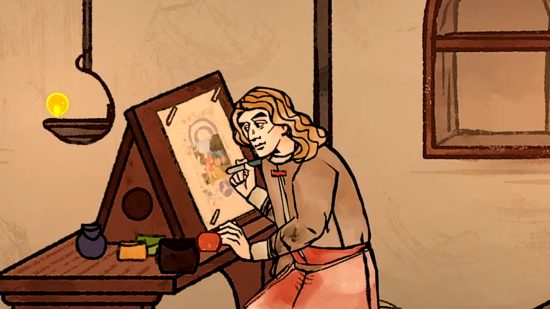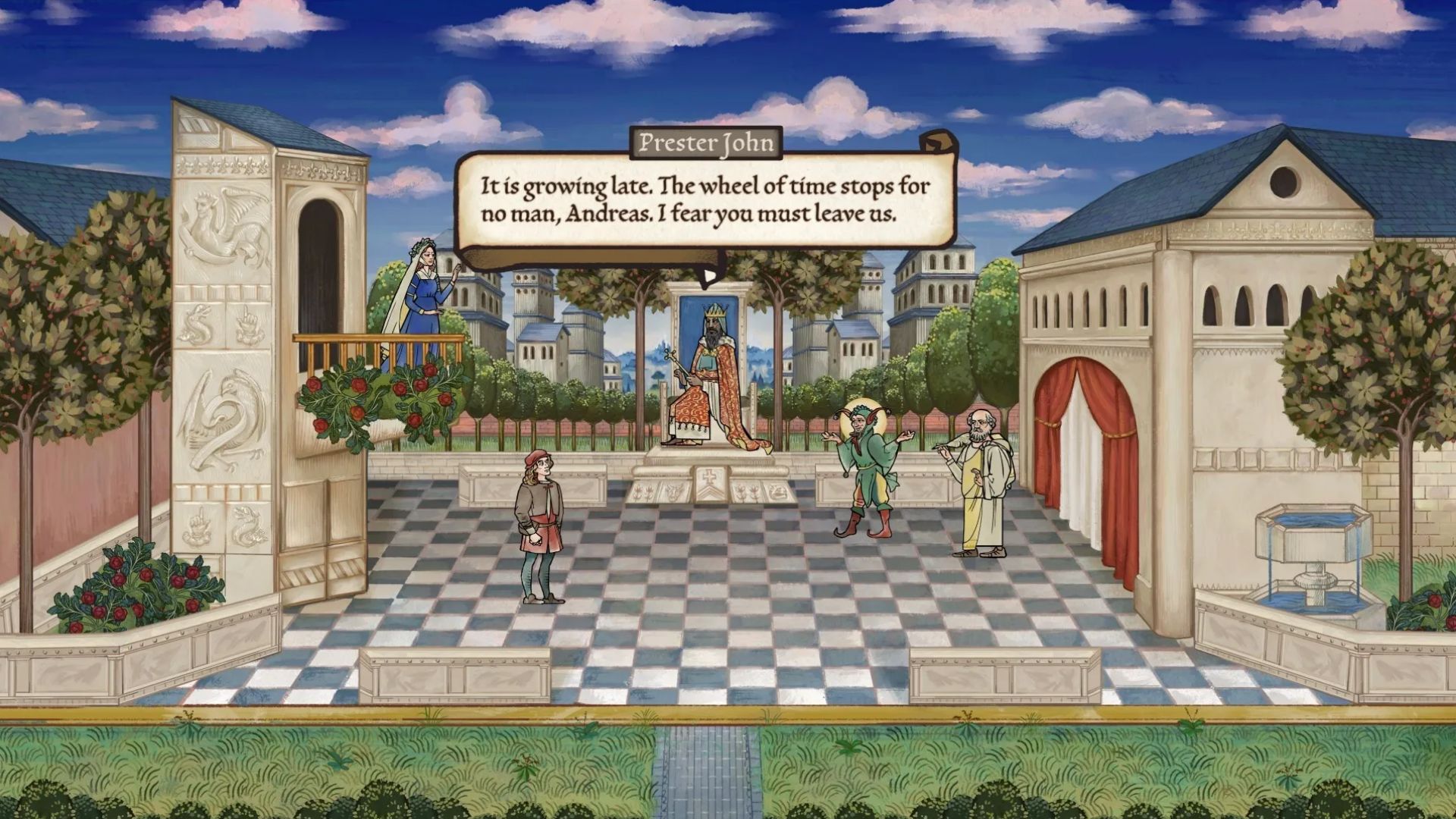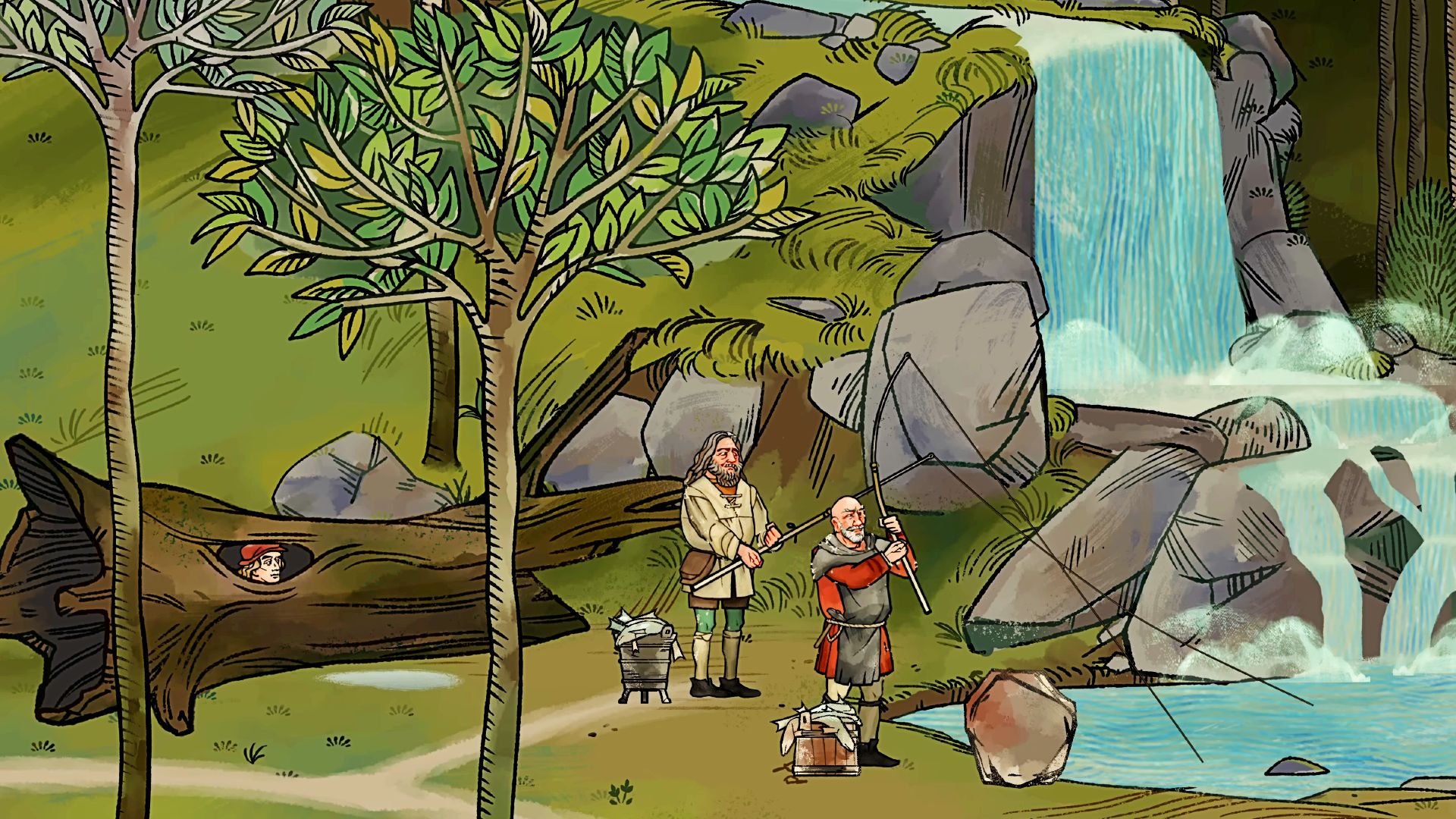Can user experience alone make a game worth playing? ‘You won’t believe the speech bubbles’ or ‘the glossary transition is about to make you its bitch’ aren’t what you’d call traditional back-of-the-box quotes, but for Pentiment, the forthcoming RPG game by Obsidian Entertainment, they’d be fitting.
In character creation, I tap the menu button to bring up a glossary. The game freezes, the camera zooms out, and the previous screen is now an illustration on the pages of an illuminated manuscript. A text note explains the terms I’m looking up: Trivium and Quadrivium, each a stage of university education in early modern Europe. A rustle of paper and thumping of leather-bound tomes solidifies the effect, and somewhere in my endocrine system, endorphins gently fizz.

It’s 1518 and you are Andreas Maler, an artist at Kiersau Abbey near Tassig in Upper Bavaria. A visiting nobleman, Lorenz Rothvagel, has been murdered, and your friend Brother Diero has been found next to his body with a bloody knife. Assured of his innocence, it’s your job to investigate further. Ignoring the three marked objectives, I decide to wander happily through the abbey’s environs until I make progress.
Obviously, Pentiment’s art style brings medieval illuminated manuscripts to mind, but there’s a subtle modernity to it. Colours are warmer and smoother than you imagine they would be, though that’s probably because all you’ve seen of their real inspiration has faded a bit over hundreds of years. A well-judged touch of Pythonesque animation imbues characters with life: a pinched chin here, a hop of outrage there.
The first lead I stumble upon is Ottilia, a grumpy old woman who may have witnessed another possible suspect. I’m warned of her hostility to the abbot and prepared to deploy a little charm to get what I need from her, but this coldly utilitarian approach thaws in our very first conversation. The strength of her anger – evident in her every mention of the nearby townsfolk, and especially the abbot – suggests real grievance, but it’s so reflexive and indiscriminate that it feels like a defence mechanism, too. Passing mention of a deceased husband, and her agreement to talk further if I help out with a few chores, conveys the loneliness and difficulty of her life. She’s done nothing but insult me and assume the worst of my intentions, but I’m compelled to help her.
These dialogues are conveyed via speech bubbles in which the text appears immediately in outlined characters, which are then filled in by painterly brushstrokes; you get an immediate image of the whole comment, and can then follow along as it’s filled in. It helps it all settle, cognitively speaking, and strengthens the conceit of a human narrator of the tale. There’s even the odd misprint, which the writer will cross out and correct.
Such delightful attention to detail in the user experience is no surprise. Pentiment’s game director is Josh Sawyer, who has a side hustle reviewing the UX of showers on twitter. But I’m a little amazed at the difference it makes. It’s easy to get excited by what Obsidian’s Microsoft stablemate, Bethesda, is promising in the scale of Starfield, but I’m honestly nervous for the bugs, broken quests, and general jank that long experience with Bethesda’s games has taught us to expect. By delightful contrast, playing Pentiment – so far – is smoother than ice skating on a greased-up Sinatra.
Ottilia and I go to gather firewood in the forest. There’s a short, tactilely enjoyable minigame in which I squeeze the shoulder buttons to break sticks down to the correct size. Ottilia insults me all the while, before conceding that I might be “not so useless”. She then asks me to break a piece off a large log, which has been felled for the abbot alone. I’m given the option to pause and think about my response, hinting that it’ll be significant: “I know Ottilia feels she’s been wronged by the abbey, but the wood does still belong to the abbot”. I’m offered a wider choice of responses than usual, and take Andreas’s hint by avoiding those that seem too explicitly favourable of the abbot, arguing that poaching is “wrong” in a more general sense.
Ottilia gets cross anyway: why should a piece of paper entitle anyone else to this wood other than the villagers, who were here first, who need it, and who tend the forest? I de-escalate the argument by saying we have enough wood anyway and that I need my strength for her other chores, and Ottilia relents. It’s nice to have this option; too many quests in RPG games end in a fight even if you get a perfect score on the widget-gathering prior. This not only undermines the rationale for the widget-gathering, but it isn’t how human interactions work. Again, Pentiment – so far – feels like it understands this. It feels like it understands everything about the experience it’s trying to deliver.
And that’s why it was my personal highlight of Gamescom 2022. Pentiment doesn’t do anything that’s obviously radical. It’s a cosy little narrative adventure game that feels like what it is: a passion project led by a proud history nerd. But it oozes professionalism and care like few other games I’ve played. It’s tempting to say that its modest ambition gives it the correct scope to get every decision right, but that’s a disservice. Pentiment’s attention to minute details proves that there’s scope to be ambitious about the small stuff too. It’s a harder sell than Starfield’s 1,000 planets, but it might be just as exciting.


